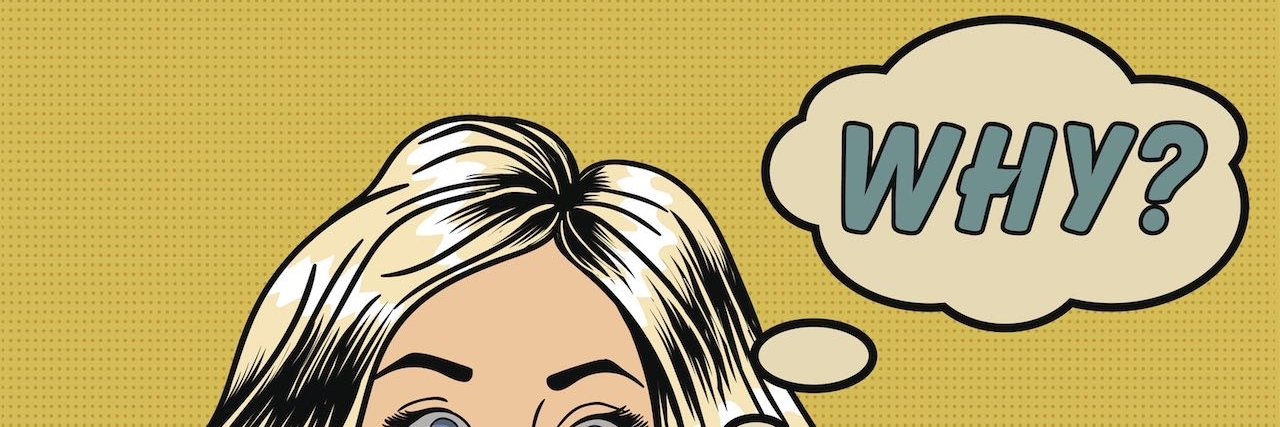“Why?”
That’s typically the question I get after I tell someone I have depression. While it’s a simple question, I need you to understand it doesn’t have a simple answer. I can tell you how I have a chemical imbalance in my brain or how I’ve dealt with particular environmental stressors. There are many reasons people have depression. And sometimes there doesn’t seem to be any reason at all. It’s just there.
Learning to live with it and how to fight it is enough of a struggle without trying to explain why.
I have depression. And I don’t owe you an explanation.
The question “why” shouldn’t be the first thing you ask after someone confides in you. Here’s why:
1. Explaining why I have depression is exhausting. My personal experience with mental illness is a heavy topic, and I’m not always up for discussing it. While confiding in others can be freeing (shout out to therapy), it can also be incredibly draining. Please do your research before asking someone with depression a million questions.
2. I might not know why. I’m 20 years old. I am at a point in my life where I’m discovering who I am. I can’t be expected to know all the answers, even if they are about me. Believe me, I’ve spent my fair share of time asking myself why. Why is this happening to me? Why do I have to deal with this? But these questions only lead to more negative thoughts and self-pity, and they won’t help me move forward. Please don’t hold me back.
3. It is invalidating. Asking me why I have depression can lead to feelings of guilt. I feel guilty I’m depressed when obviously I shouldn’t be if someone has to ask me why. This, of course, isn’t true. But it’s a toxic thought I’ve had before. Even when I try to explain it to people, I’ve had some tell me my reasons for having depression “aren’t good enough.” Not only is this incredibly invalidating, it is stigmatizing. Please don’t add to the reason more people don’t reach out for help.
Here’s a few things you can do instead of asking someone “why:”
1. Listen. Let me decide how much I want to tell you. Don’t assume because I’m opening up to you that I’m willing to go into every detail. Sometimes I don’t need you to ask a lot of questions. I just need someone to hear me out and feel supported. While not asking a lot of questions might be uncomfortable for you, imagine how uncomfortable too many questions can be for me.
2. Ask me, “How can I help you with this?” There might not be anything you can do. But knowing someone is willing to help can be enough by itself. This question also means you’re focusing on the future instead of dwelling on the causes.
3. Validate what I tell you. Let me know you hear me and believe me. Let me know I have every right to feel the emotions I experience.
Depression isn’t easy. But having people around who are supportive and non-judgmental can help tremendously.

